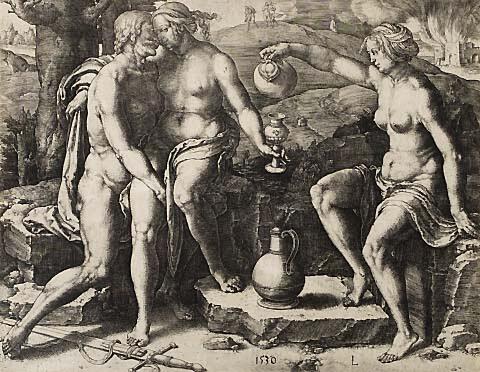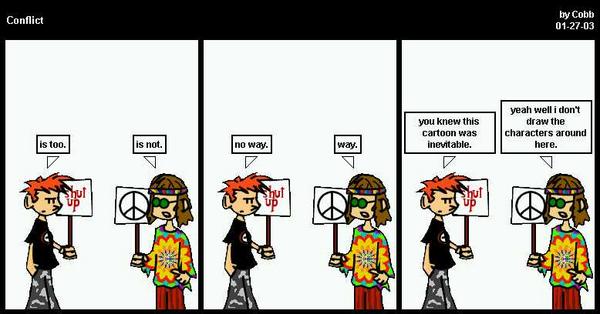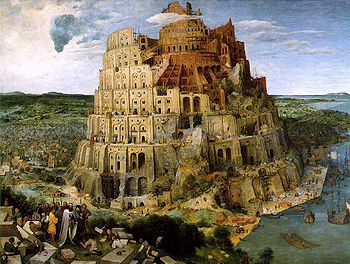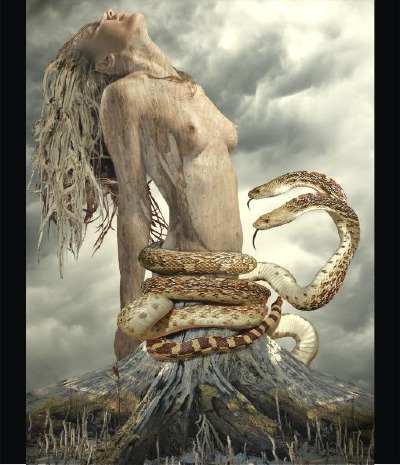Class Notes: 10-15-09
-Stay Healthy! Watch out for puking pigs.
-Blogs to check: Nick, Alex, Natalie, Ty, Jenna, and the rest of our class; lot of good insights and musings.
-The battle between P and J, a never-ending one; The P writer and people who relate usually think of the bible as a book of rules, the Ten Commandments, Deuteronomy; The J writer and people who relate usually think of the bible as a book of stories, narratives, and images.
-The Book of Deuteronomy, not a narrative, but a book of form that still has unity, unity of thought, and doesn’t contain many lacunas. The Selah, the opening prayer at religious services, pulled from Deuteronomy. Commandments of all commandments: One Lord, you shall not worship any other Lord.
-Law, a subset of literature, literature as the uses of language. And so even the book of Deuteronomy can be read as literature; and stories can be read as rules to live by.
-Michelangelo’s sculpture of Moses with horns, mistranslated from radiant. Bloom’s comment, “there is no correct reading of anything, only misreading.”
-And the way to correct our understanding of possible mistranslations is to, well, read, read the bible and see what it literally, letterally says.
-The Ten Commandments; do they even exist in the bible as a strict set of rules? Or are they merely mistranslated or mistakenly thought to be laid-out in the bible? Plotz recognizes the ambiguousness of the commandments, sometimes there are 10, in other places there’s 16, or even 6.
-The Bozeman trial, from last year, of someone coveting their neighbors donkey, they were sentenced to death!!
-Check the website, Ask Dr. Laura and respond to the questions. Also, get the book, “The Year of Living Biblically.” Is it possible? The first dilemma, are clothes Kosher?
-Leviticus 18:22 the issue of homosexuality. Biblically, it’s an abomination, that’s that. But what about all the other rules… they must stand too!
- Deuteronomy 22; the issue of the virgin wife; reminds me of “The Lottery” by Shirley Jackson, the penalty of stoning. Same penalty for a misbehaving child.
-January 1965, Sexson began teaching, and he can remember the names of every student. Go!
-Finding the boring fascinating; lists, names, reading the bible; Why is it so hard to transform from boring to fascinating? What is the dilemma? We’re not interesting enough; next assignment, become more interesting, and the bible will become less bored with you, and especially me. The main problem: all of society has ADD; we can’t focus on one thing for more than a television commercial, less than a minute.
-Jenna’s blog: God’s Backside, Moses witnesses God streaking. Moses didn’t see God face to face, as people interpret. She continues to discuss her experience in church when the pastor brought up the sin of divorce and remarriage. A collision between what the bible says and personal experiences that contradict the bible. The epiphany that it’s ok to question God.
-epiphany: a sudden manifestation of the divine, divine thought or a supernatural being; not finding car keys.
- The Job question –Theodicy: the vindication of divine goodness and providence in view of the existence of evil.
-We ask, “Why me?” God answers, “because you pissed me off.”
-Derrick’s scar story, getting hit by a car on the way to work.






